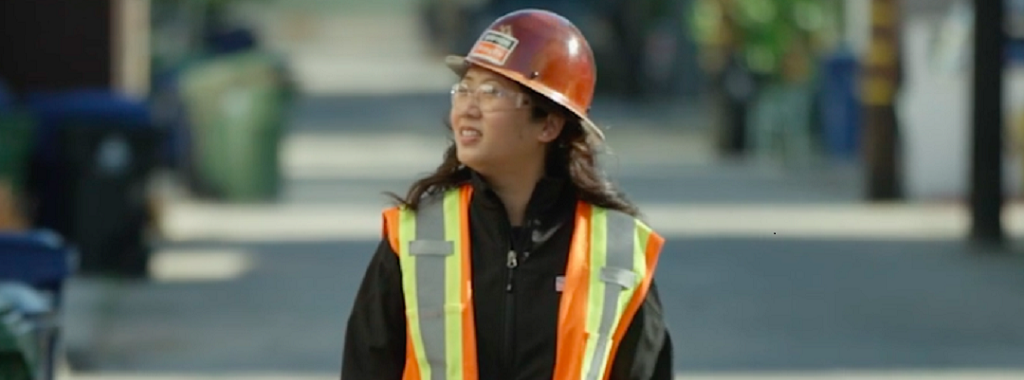Every February, the National Society of Professional Engineers honors the profession of engineering during Engineers Week. The goal of Engineers Week is to “celebrate how engineers make a difference in our world.” Engineers are the foundation of Simpson Strong-Tie, and we appreciate our engineering team daily. However, this year we’re using Engineers Week as an opportunity to tell the story of individuals who help make up our Engineering Department.
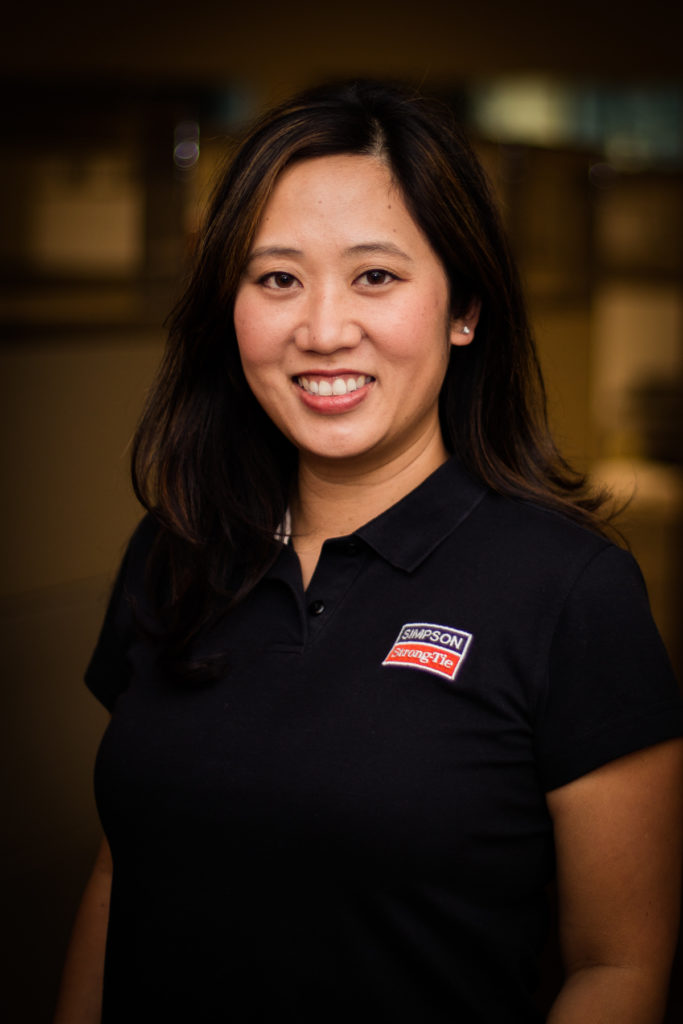
To kick things off, we’d like to introduce our Vice-President of Engineering, Annie Kao. Growing up with an engineer for a dad and a mom who worked at an aerospace company, Annie knew from a young age that she wanted to get into structural engineering. Behind seemingly everyday construction materials of wood, concrete, steel and masonry, Annie is able to see exciting projects that can not only change the physical landscape but also offer young people the opportunity to get out of their comfort zone (and out of the office!) in a dynamic and ever-evolving profession.
Annie joined the company in 2006 as an engineer at our branch in Riverside, California, holding management positions in Training and Field Engineering. She’s a state-licensed California professional engineer and received her MS in structural engineering from UC Berkely and her BS in engineering from Harvey Mudd College. In 2019, she was promoted to Vice President of Engineering.
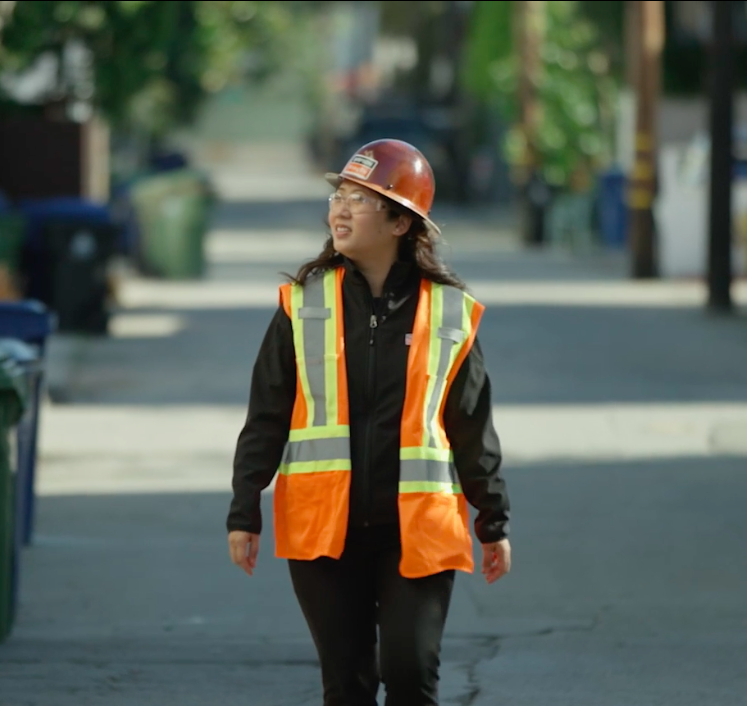
How did you find your way to a career in construction?
As a kid, I always loved putting things together, from building an IKEA cabinet to setting up computers and monitors for my parents when I was growing up. I love assembly, and as I’ve progressed in my career, that has even meant putting teams together and putting ideas together and seeing the fundamental relationship between a machine with 500 different parts and a construction project with just as many parts and bits of information.
Do you have any mentors or role models who inspire you professionally?
It’s great to work at a company with great leadership, and Simpson Strong-Tie CEO Karen Colonias is so smart and capable and such a people person and so generous with her time. It’s inspiring to see leaders who are technically up to speed while also demonstrating that they’re attuned to what people need and want. As for other role models, I always think about my parents in terms of work ethic and being able to focus, persist and make yourself better at some skill or craft. I’m also inspired by Dr. Lucy Jones, a retired seismologist, who has made it her mission to be the foremost earthquake expert but who also takes time to talk about how science affects society, and how the human element impacts decision-making. She’s always finding the heart behind the science.
What brought you to Simpson Strong–Tie?
I never saw myself as a principal at a structural engineering firm, but I wanted to stay in the industry. Joe Polder was the Simpson Strong-Tie contact at our firm, and I went to a workshop at Branch 22, then in Brea, CA, where I met Ricardo Arevalo (our now-retired COO). I thought, “That’s a company I have so much respect for, I use their products all the time.” I applied for a branch engineer position and was introduced to a whole different side of the industry.
What were your experiences in your different roles prior to becoming VP?
I got the opportunity to run the training program for Brea, which was really fun. I ended up going back to engineering as a senior field engineer after two years, and I just loved it. I had flexibility, which was great because I had just had my third child. I also got to work on bigger, companywide initiatives in the Engineering department, with folks like Tim Kaucher, Jeff Ellis, and Charlie Roesset. There were so many other aspects to think of, like strategy, resources, and planning and development. Five years into the role, I became a supervisor and enjoyed helping others succeed as direct managers.
What made you decide to apply for the VP role?
When the role came up, it seemed like a pipe dream. It was an incredible opportunity to do what I loved on a bigger scale, and to be able to share a bigger vision and ideas with others. There were many amazing folks with great ideas within Engineering, so I was really excited to be able to share my passion and vision for the company and be able to move forward. And I am still learning so much. I’ve had amazing support, and incredible mentorship from Ricardo and Jeremy Gilstrap (former VP Engineering, now VP of Concrete Construction Products), and so many other folks at Home Office and the branches.
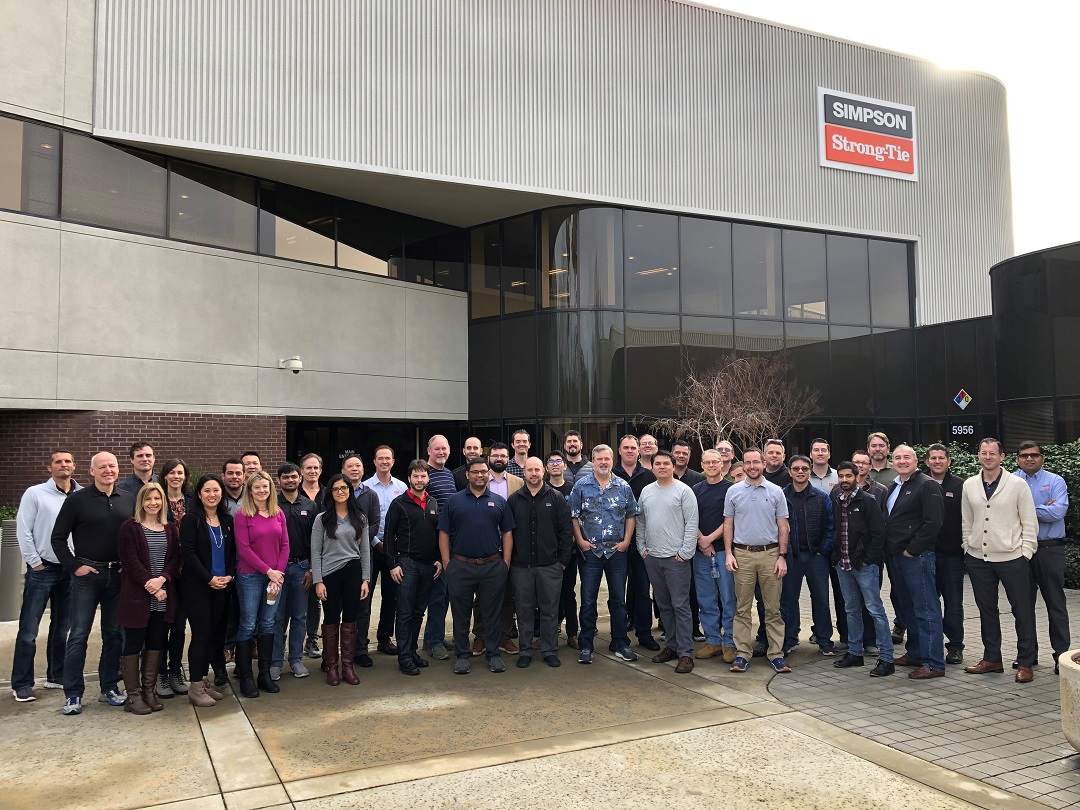
What is the Engineering team responsible for at Simpson Strong-Tie?
The Engineering team is responsible for research and development of new technologies and products; operating our university-grade test labs, and developing advanced research test programs; creating technical resources such as literature and technology tools to support design professionals; providing excellent engineering design services and submittal packages for our product lines; and supporting manufacturing to ensure high-quality products across all our business segments.
Why is the Engineering Department so important to Simpson Strong-Tie?
Engineering plays a crucial role in the company’s ability to help our customers design and build safer, stronger structures. We work hard every day to provide products and solutions to the industry that add value to a project through our engineering innovations, our world-class testing capabilities, and our unmatched jobsite technical support.
What are some of the greatest accomplishments of the Engineering team?
Introducing key products to the wood construction market such as the screw-style HDU holdown and the Strong-Wall® prefabricated shearwall, which both helped to improve residential construction after landmark earthquakes caused changes in the building codes.
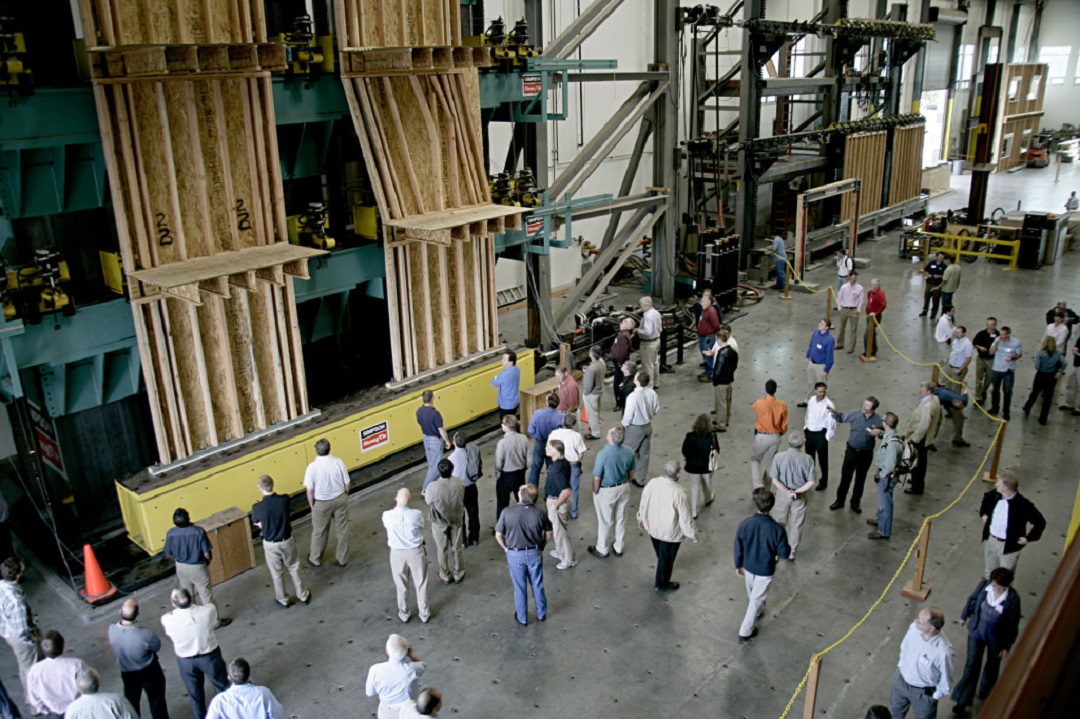
Opening the Tye Gilb Lab in 2003, which enabled us to perform full-scale testing. We’re undertaking a major upgrade this year to enable us to conduct larger-scale tests for multifamily, commercial and infrastructure projects involving concrete, structural steel and mass timber.
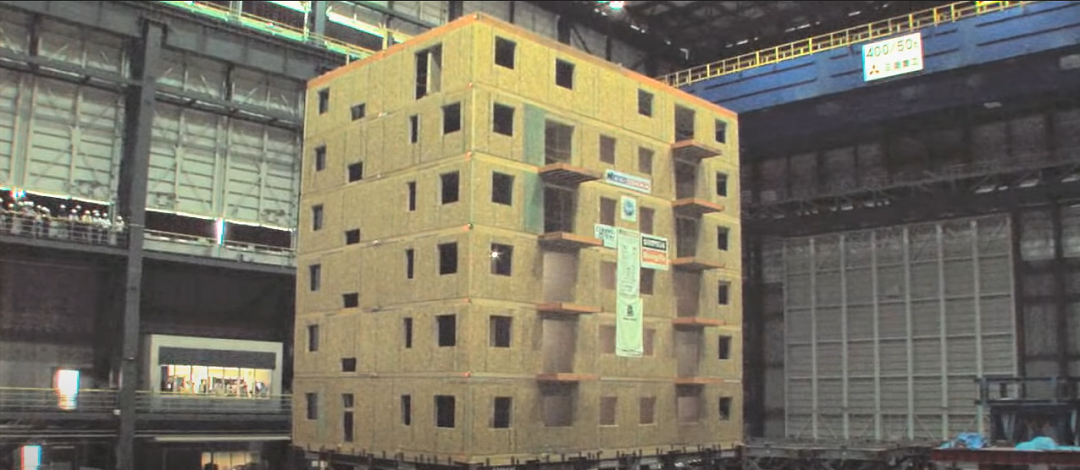
Participating in the world’s largest shake table test in Japan for three months in 2009. It so happens that we’re also going take part in the world’s tallest shake table test at UC San Diego later this year involving a 10-story mass timber building.
What do you wish you knew about engineering before graduating?
I wish I had known how many possibilities would be open to me as someone with an engineering degree. At the time, it seemed that becoming a design engineer was the one path that made sense, but since then I have learned that the fundamental skills that engineering teaches you, like analytical problem-solving and collaborative teamwork, can take you down many different paths and that being able to apply an engineering mindset to any sort of project or process is a real advantage. Engineering gives you a solid foundation to tackle any challenge and explore a a wide variety of career or life trajectories that you may not have thought of.
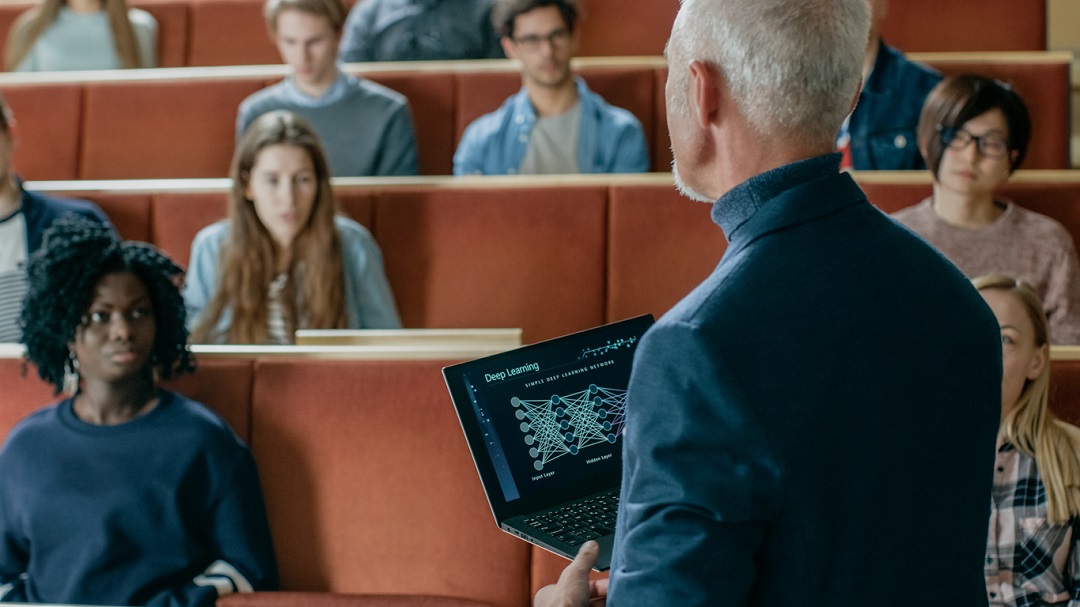
What would you tell a student who’s on the fence about going to school for engineering?
I would ask that young person what drives and motivates them and what kind of impact they hope to have through their work. If they like to be creative and bring ideas to life, then engineering is a great path to take.
Any final words to our engineers?
The wonderful thing about the engineers at Simpson is that they are so multi-talented — they’re not only great technical thinkers but also bring personal empathy and insight to solving problems for our customers through, and are alsoable to communicate their ideas with passion and clarity.


